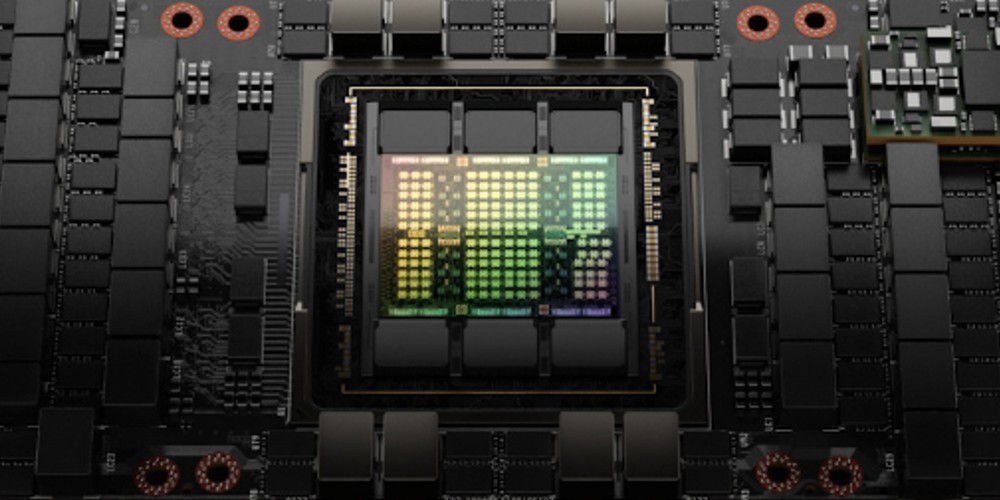In a strategic move to circumvent U.S. export restrictions, Chinese AI developers are tapping into global computing resources, bypassing the need to import high-end American chips like those from Nvidia directly into China. This workaround involves collaborating with brokers to access computing power abroad, often under the cover of anonymity techniques borrowed from the cryptocurrency sector.
The U.S. has imposed stringent export controls on advanced chips, particularly Nvidia’s powerful H100 chips, aiming to curb technological advancements in China that could have military applications. However, the demand for these chips in China remains high, leading to innovative solutions like those provided by Derek Aw, a former bitcoin miner turned entrepreneur. Aw has facilitated the setup of AI servers equipped with Nvidia chips in locations like Australia, serving Chinese companies remotely.
Aw’s approach involves setting up data centers overseas, like the one in Brisbane, Australia, where over 300 servers were installed to process AI tasks for a Beijing-based company. This method leverages the concept of renting computing power, a practice not new but made more complex by the need for anonymity due to U.S. regulations.
The transactions are often anonymized through smart contracts on blockchain platforms, where identities are concealed by cryptographic keys, and payments are made in cryptocurrencies. This setup allows Chinese companies to operate under the radar, sometimes through subsidiaries in countries like Singapore, further distancing themselves from direct U.S. oversight.
The decentralized GPU model has gained traction, especially after the cryptocurrency mining boom waned, freeing up computing resources worldwide. Platforms like io.net boast of providing unrestricted access to GPU power without the usual customer verification processes, appealing to Chinese entities looking to maintain privacy while accessing technology.
Joseph Tse, formerly with a Shanghai AI startup, highlighted the shift to these decentralized services after traditional cloud providers like Amazon Web Services became inaccessible due to U.S. restrictions. These platforms, while offering a workaround, come with risks like potential data breaches due to the inherent vulnerabilities in blockchain systems.
At industry events, such as one in Singapore, companies are openly marketing these decentralized GPU services, indicating a growing market for such solutions among Chinese developers who need less intensive computing power for smaller AI applications. However, for large-scale AI training, like that required for models similar to ChatGPT, these decentralized setups fall short, prompting efforts to create larger, more centralized computing clusters.
Edge Matrix Computing (EMC) is one example of a company expanding its network to include thousands of GPUs, including those under U.S. export controls, for more robust AI training capabilities. EMC and similar ventures are exploring bulk purchasing of chips like Nvidia’s H100, aiming to reduce costs for intensive AI computing.
The U.S. government, aware of these developments, is tightening its oversight. Senator John Kennedy has expressed concerns over the effectiveness of current export controls, urging stricter measures. The Commerce Department, in response, has been monitoring and attempting to clamp down on these illicit procurement networks.
Meanwhile, entrepreneurs like Aw continue to expand their operations, planning new clusters with the latest chip technologies, legally operating under the guise of foreign subsidiaries. This cat-and-mouse game between regulatory enforcement and technological circumvention highlights the complex landscape of international tech trade and the ongoing battle over technological supremacy.
Don’t just survive — THRIVE! Prepper All-Naturals has freeze-dried steaks for long-term storage. Don’t wait for food shortages to get worse. Stock up today. Use promo code “jdr” at checkout for 25% off!
Article generated from corporate media reports.
What Would You Do If Pharmacies Couldn’t Provide You With Crucial Medications or Antibiotics?
The medication supply chain from China and India is more fragile than ever since Covid. The US is not equipped to handle our pharmaceutical needs. We’ve already seen shortages with antibiotics and other medications in recent months and pharmaceutical challenges are becoming more frequent today.
Our partners at Jase Medical offer a simple solution for Americans to be prepared in case things go south. Their “Jase Case” gives Americans emergency antibiotics they can store away while their “Jase Daily” offers a wide array of prescription drugs to treat the ailments most common to Americans.
They do this through a process that embraces medical freedom. Their secure online form allows board-certified physicians to prescribe the needed drugs. They are then delivered directly to the customer from their pharmacy network. The physicians are available to answer treatment related questions.


